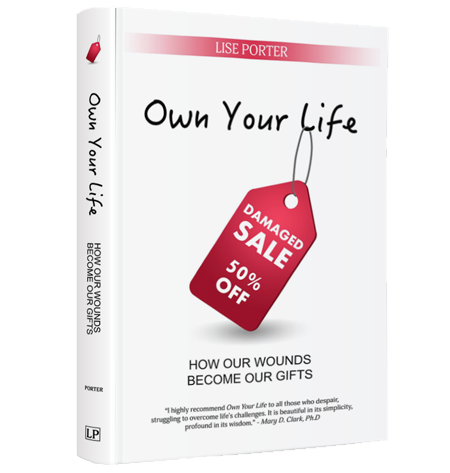I have worked in the mental health field for twenty-three years. I know the terrain extremely well. And although I am grateful that public knowledge of mental illness has increased, I grow weary when I frequently hear every societal problem attributed to mental illness.

Not everything is a mental illness!
Sometimes we’re distraught because we’re going through something tough. Perhaps a death in the family, a divorce, or job loss triggers a challenging period. Or maybe we’re anxious because we haven’t learned to manage stress well and we’re going through significant life changes without much social support. These types of things greatly influence mood state and to a certain degree are a regular part of life. Human beings suffer terribly and we are all challenged by how to develop resiliency.
I invite us to consider the concept of mental wellness. How do we learn to function whether we’re ever given a mental health diagnosis or not? We all need to address mental wellness no different than we look after our physical health.
Mental health exists along a continuum. It is comparable to physical health. For instance, if I have a runny nose, am fatigued, and don’t feel well, I meet the criteria for a cold. After two weeks, when the symptoms have cleared, I no longer have the diagnosis. But if I have diabetes or a heart condition, I might have the diagnosis my entire life and then I learn to manage the symptoms. Mental illness is no different. Sometimes we’re given a diagnosis at one point in our lives but later, we may no longer meet criteria. With another illness, the diagnosis might persist. Or, we may never meet criteria for a diagnosis. Nonetheless, we still need to develop basic coping skills and to manage our emotions and stress in a healthy manner.
Contrary to popular belief, mental illness isn’t the root cause of all sociological problems. It is actually the other way around. Sociological problems can put people at risk for developing mental illness. There are only a cluster of diagnoses whose etiologies are based in pure biology and genetics. More often than not, mental illnesses emerge from a combination of factors such as trauma, genetic predisposition, environment, social isolation, family dynamics, relationship ruptures, abandonment, and abuse, etc.
If we want to reduce mental illness statistics, we also need to address bigger cosmic factors that contribute to it. We have to stop pointing fingers at “mental illness” as the cause for all and start looking at the impact of how we treat our fellow humans. TLC goes a long way in influencing mental wellness. So does social justice.
On the same token, just because we have risk factors doesn’t mean we’ll develop a mental illness. Likewise, even if we aren’t exposed to primary risk factors, we could still be vulnerable to developing a diagnosis. We could have all the support and advantages in the world and still live with schizophrenia or severe depression. Mental wellness is a complex issue because we humans are complex. We’re a unique blend of body, spirit, intellect, and emotions. We all have different temperaments and life experiences.
Finally, one of the greatest mythologies about mental health is that people with mental illness are all violent. It has become very vogue to explain every catastrophic event that occurs as a by-product of mental illness. If a crime is committed, we immediately assume the perpetrator had a mental illness. If a child or teen acts out, he or she must have a mental illness. Because who in his or her right mind would commit a crime if sane, right? Well, crimes are committed all the time by people who do not have a diagnosis. In fact, only four percent of gun homicides can be attributed to those with a mental illness. What then compels people to violence? Why do we hurt each other? Is it greed, entitlement, poor impulse control, no moral compass, ignorance, or evil? Who knows. But not everything is caused by mental illness alone.
But one thing is certain. We can all work on our mental wellness. We can challenge ourselves to engage in basic acts of self care. Exercise, get enough sleep, breathe, socialize, and relax. Explore feelings and get in touch with our inner selves. See a therapist or join a support group. Laugh. Reach out to others. Connect to something that endows life with meaning. Because we all need to feel like we have a purpose and like we’re in relation to others. That part isn’t rocket science. It’s fundamental to humanity.
Tags: health and wellness, holistic health, mental health, mental illness, mental wellness, stress management







